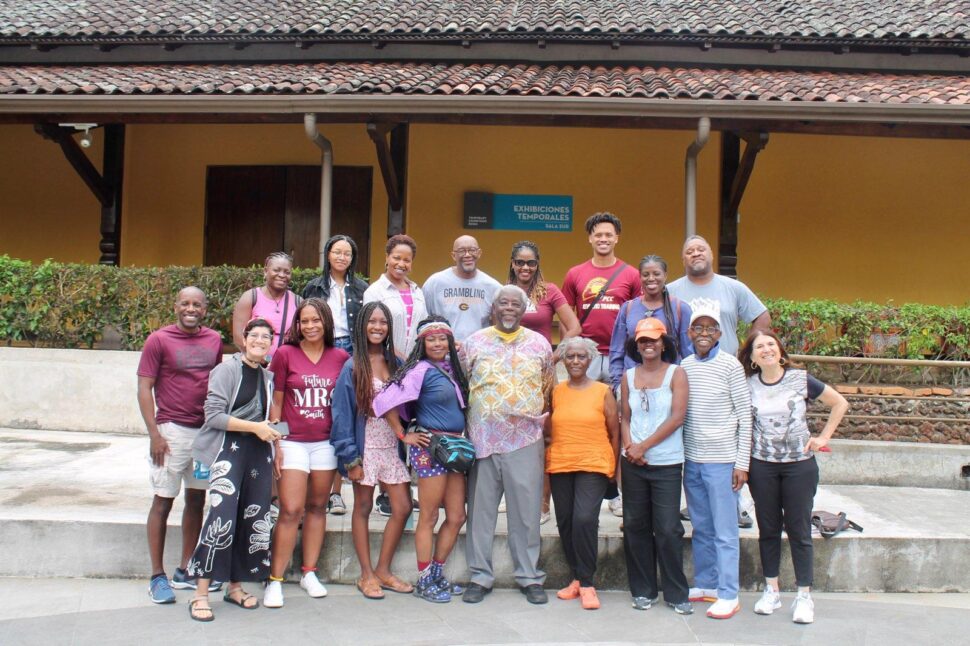Kim Haas has actively explored Afro-Latino culture and contributions across Latin America for over a decade. Her grandmother planted the seed, taking her on a trip that steered her toward her passion and, ultimately, her career.
“My grandmother took me to Acapulco, Mexico. I remember being in the hotel lobby, and a stranger approached me and asked, ‘Would you like to learn how to count in Spanish?’ From that moment on, I was hooked,” she tells Travel Noire.
Haas went on to study Spanish in elementary, middle, and high school. She majored in Spanish and traveled abroad to Seville, Spain, where her Spanish family made her feel right at home. It was through her studies before her time abroad that she became interested in Afro-Latino culture.
“During one of my undergrad courses, I did a paper on enslavement in Brazil and contrasted it with Cuba. Both countries have always interested me. I knew that there were Afro communities there.”

After graduating and leaving Spain, Haas visited Cuba, Brazil, Puerto Rico, Venezuela, and the Dominican Republic and couldn’t believe she was stunned by what she witnessed.
“All of these people look like me, a dark-skinned African American. I knew about the Middle Passage and how they got there, but it’s one thing to read and learn about. It’s another thing to see it [first hand]. I was blown away, and it still is all these years later.”
Haas says she wanted to learn more about Afro communities – their incredible talent, history, legacies, and contributions – so she started finding them. She has since created a public television series, Afro-Latino Travels with Kim Haas, dedicated to uncovering Afro-Latino culture.
Tips For Exploring Afro-Latino Communities In Latin America
So far, her series has been shown in Costa Rica and Colombia. She has introduced viewers to music festivals named after Afro artists, introduced viewers to the sisters of the first Black Vice President of Costa Rica, and more. Haas also hosts group trips to help people discover the contributions of Afro-Latino communities.
“It’s important to explore Afro-Latino culture because we have so much in common. There is so much in common you can see yourself in so many of the people,” Haas says. “Some of the things these communities have gone through in terms of fighting for economic rights, visibility, discrimination […] a lot of these experiences we have in common. We have to know this culture and history and share it with each other.”
Haas says the best way to engage with local Afro communities while traveling through Latin America is to reach Black communities in the area, rely on community members to steer you in the right direction, and even reach out to people in your own community at home who could be of assistance.
“I think so often they’re happy to have people visit and want to learn. I don’t want to speak for these communities, but people have shared with me that they feel invisible. It wasn’t until recently that Afro-Latino communities started to be recognized by their communities,” Haas adds.





